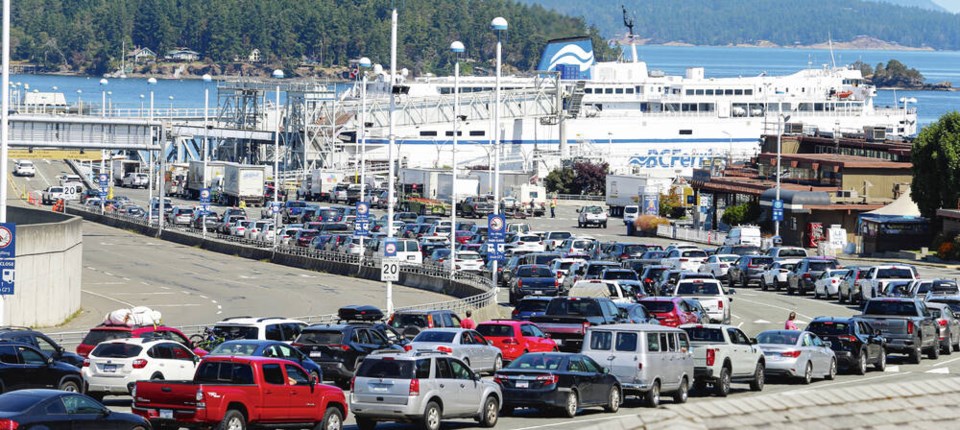New year, new rules, new rates.
Here are a few changes that consumers can expect to see in 2022.
Sick leave
Paid sick leave will be standard for workers in sa国际传媒 beginning Jan. 1, with a minimum of five paid sick days each year. The province estimates one million workers, most of them at the bottom of the pay scale, currently get no sick leave.
Don’t chuck your milk jugs
Starting Feb. 1, sa国际传媒’s beverage container deposit-refund system will expand to include milk containers (and containers for milk alternatives), putting them in the same category as pop bottles, beer cans and the like.
That means you’ll pay an extra 10 cents per container at the store. You can get your deposit back at your local bottle-return depot (there are seven around the capital region, plus a self-service unit at the Hartland landfill where you drop off bottles, then get payment by email).
You’ll still be able to leave your milk jugs in the blue box, but you won’t get your deposit back.
Note that the Environment Ministry has a five-year plan that will eventually add more items — electric-vehicle batteries, mattresses, medical sharps, compressed canisters such as propane canisters and fire extinguisher — to its Extended Producer Responsibility strategy, in which manufacturers, distributors and retailers are responsible for the life cycle of their products.
Electricity bills going down!
sa国际传媒 Hydro has applied to lower electricity rates by 1.4 per cent on April 1. If the sa国际传媒 Utilities Commission approves the request, that will save residential customers about $23 over a year. Commercial customers’ annual electricity costs will be reduced by $974 on average and industrial customers by $325,205.
This is the second time in the past three years sa国际传媒 Hydro will decrease bills for its customers. Be forewarned, though: Hydro is requesting increases of 2.0 and 2.7 per cent in 2023 and 2024.
No change to minimum wage
There’s no change to the minimum wage scheduled for 2022. That’s noteworthy, as the rate has risen each June 1 since 2018, going from $11.35 an hour in 2017 to $15.20.
Ferry fares up, buses static
Under a deal that saw them get Safe Restart money from the provincial government last year, sa国际传媒 Ferries and sa国际传媒 Transit had their annual fare increases capped at 2.3 per cent through March 31, 2024.
Ferry fares will rise by an average of that amount across the fleet on April 1. No change to Victoria bus fares is scheduled, though.
sa国际传媒 Transit is reviewing its overall fare strategy as it relates to changes in demand and travel patterns associated with the pandemic, but has no plans to review Victoria fares in 2022.
No ICBC increase
It won’t be like 2021, when a new car-insurance model saw ICBC slash its premiums. Still, ICBC rates won’t go up until 2023 at the earliest.
By the way, during the first four months of the new system, most customers who renewed their full personal auto insurance through ICBC saved an average of 28 per cent, or $496, compared to the previous year.
Fortis up
Fortis sa国际传媒 bills will rise nine per cent — about $8 a month, on average — effective Jan. 1. A factor is the rising price of natural gas over the past three months.
Carbon tax
The carbon tax will go up by $5 to $50 per tonne in April, adding about a penny a litre to the price at the gas pump.
The other part of the equation, the Climate Action Tax Credit, will see more money start flowing the other way July 1.
The credits are based on income, with low-income people benefiting the most. The maximum amount sa国际传媒 adults can receive each year will rise to $193.50 from $174. The rate will go from $51 to $56.50 per child.
New high-interest rules
sa国际传媒’s consumer-protection rules governing instalment loans or lines of credit with an interest rate above 32 per cent will come into effect May 1.
The regulations, designed to protect people who resort to high-cost financial services to make ends meet, will ban certain fees and practices and establish borrowers’ rights.
The rules will be in line with those for payday-loan companies.
Plastic ban coming in 2021, er….
It was supposed to happen this year, but a federal ban on six single-use plastic items, including bags, straws, six-pack rings and cutlery, is now expected sometime in 2022.



